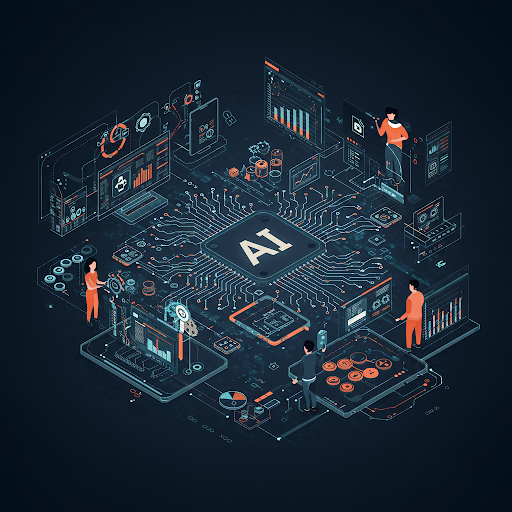
Artificial Intelligence (AI) is revolutionizing production planning
Artificial Intelligence (AI) is revolutionizing production planning, offering numerous benefits that translate into greater efficiency, lower costs, and improved adaptability to dynamic market conditions. Here are the key advantages of using AI in this area:
More Accurate Demand Forecasting:
AI can analyze vast amounts of historical data, market trends, social media data, and even weather factors to create significantly more accurate demand forecasts. This allows for better alignment of production volume, avoiding overproduction or shortages.
Optimized Production Scheduling:
AI algorithms can create optimal production schedules by considering multiple variables simultaneously: machine and raw material availability, employee skills, changeover times, order priorities, and delivery deadlines. This leads to maximum resource utilization and minimized downtime.
More Efficient Resource Management:
AI assists in the optimal allocation of raw materials, minimizing waste and ensuring their availability when needed. It can also optimize the consumption of energy and other utilities.
Inventory and Supply Chain Management:
AI systems can dynamically manage inventory levels by predicting demand and automating ordering processes. They also optimize delivery routes and logistics, reducing transportation costs and times.
Predictive Maintenance:
By analyzing data from sensors on machinery, AI can predict potential failures before they occur. This allows for scheduling maintenance work at the optimal time, avoiding unplanned downtime and costly repairs.
Improved Quality and Waste Reduction:
AI can monitor production processes in real-time, identifying deviations from norms and potential causes of defects. This enables quick corrections and minimizes the number of defective products and the amount of waste.
Greater Flexibility and Adaptability:
In the event of unexpected disruptions (e.g., machine breakdowns, delays in raw material deliveries, sudden changes in orders), AI systems can quickly analyze the situation and propose alternative production plans, minimizing negative impacts.
Automation and Decision Support:
AI can automate many routine planning tasks, freeing up employees’ time for more strategic activities. It also provides advanced analytics and recommendations, supporting better, data-driven decision-making.
Cost Reduction:
All the above benefits—from better resource utilization and waste reduction to minimized downtime and optimized logistics—contribute directly to significant overall cost savings in production.
Enhanced Speed and Responsiveness:
AI enables faster planning cycles and quicker responses to market changes or disruptions, giving businesses a competitive edge.
 StreamLineDB
StreamLineDB